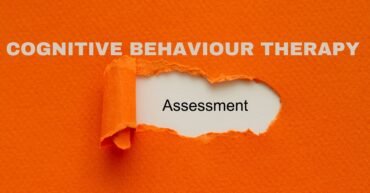Cognitive Therapy
Introduction to Cognitive Behaviour Therapy Cognitive Behaviour Therapy, commonly referred to as CBT, is a psychological intervention that has its origins in the 1960s. Developed by Dr. Aaron T. Beck, this therapeutic approach emerged from the cognitive revolution in psychology, which emphasized the importance of understanding the role of thought processes in shaping emotions and […]
What is Cognitive Processing Therapy? Cognitive Processing Therapy (CPT) is a structured, evidence-based therapeutic approach designed primarily to address the symptoms of Post-Traumatic Stress Disorder (PTSD). This form of therapy emerged in the late 1980s, developed by Dr. Patricia Resick, who recognized the need for an effective treatment method to support individuals grappling with trauma-related […]
What is PTSD? Post-Traumatic Stress Disorder (PTSD) is a mental health condition that develops in individuals who have experienced or witnessed a traumatic event. This disorder is characterized by a series of symptoms that can significantly impair a person’s daily functioning and overall quality of life. Common symptoms of PTSD include flashbacks, nightmares, severe anxiety, […]
“`html What is Cognitive Behaviour Therapy (CBT)? Cognitive Behaviour Therapy, commonly known as CBT, is a psychotherapeutic approach designed to address various mental health conditions by exploring the intricate relationship between thoughts, emotions, and behaviours. Originating in the 1960s, CBT has evolved as a significant method in the field of psychology and mental health treatment. […]
“`html Introduction to Cognitive Processing Therapy (CPT) Cognitive Processing Therapy (CPT) is a form of cognitive-behavioral therapy specifically tailored for individuals suffering from Post-Traumatic Stress Disorder (PTSD) and other trauma-related disorders. Developed in the late 1980s, CPT aims to help individuals process and reframe traumatic experiences, thereby reducing the distressing symptoms associated with these events. […]
Introduction to Cognitive Processing Therapy (CPT) Cognitive Processing Therapy (CPT) is a specialized form of cognitive-behavioral therapy designed to address the complex and often debilitating symptoms of post-traumatic stress disorder (PTSD). Developed in the late 1980s by Dr. Patricia Resick and her colleagues, CPT has its roots in cognitive theory and the understanding that our […]
Introduction to Cognitive Processing Therapy (CPT) Cognitive Processing Therapy (CPT) is a specialized form of cognitive-behavioral therapy aimed at assisting individuals dealing with Post-Traumatic Stress Disorder (PTSD). Developed in the late 1980s by Dr. Patricia Resick and her colleagues, CPT has been extensively researched and validated as an effective treatment for PTSD. The therapy’s fundamental […]
Introduction to Cognitive Processing Therapy (CPT) Cognitive Processing Therapy (CPT) is a specialized form of cognitive-behavioral therapy developed in the late 1980s by Dr. Patricia Resick and her colleagues. It was initially designed to address the unique needs of individuals suffering from Post-Traumatic Stress Disorder (PTSD) and other trauma-related conditions. The primary objectives of CPT […]
Introduction to Cognitive Processing Therapy (CPT) Cognitive Processing Therapy (CPT) is a highly structured, evidence-based psychotherapeutic intervention designed to address the cognitive and emotional disturbances associated with Post-Traumatic Stress Disorder (PTSD) and other trauma-related conditions. Developed in the late 1980s by Dr. Patricia Resick, CPT is grounded in cognitive-behavioral theory, which posits that maladaptive thought […]
Introduction to Cognitive Processing Therapy (CPT) Cognitive Processing Therapy (CPT) is a highly structured, evidence-based psychotherapeutic intervention designed to address the cognitive and emotional disturbances associated with Post-Traumatic Stress Disorder (PTSD) and other trauma-related conditions. Developed in the late 1980s by Dr. Patricia Resick, CPT is grounded in cognitive-behavioral theory, which posits that maladaptive thought […]


